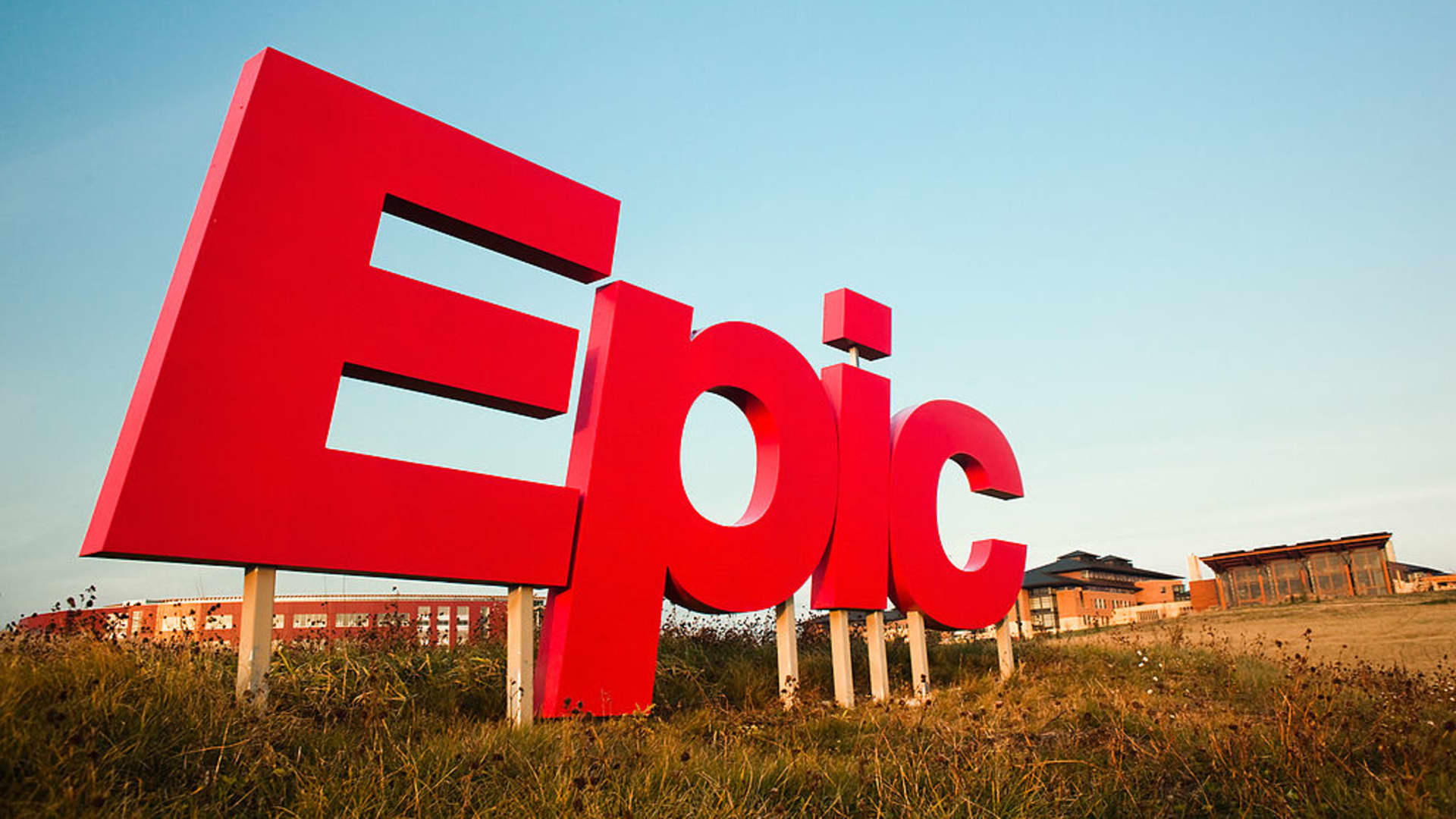The eponymous sign in front of Epic headquarters in Verona, Wisconsin.
Source: Yiem via Wikipedia CC
Epic Systems, the healthcare software giant whose technology is used in thousands of hospitals and clinics across the country, said Friday that it plans to move all of its customers to a new, government-backed medical records exchange by the end of next year.
Epic is one of the groups that helped the federal government build the Trusted Exchange Framework and Common Agreement (TEFCA) to create a legal and technical framework for the secure exchange of patient data.
TEFCA was introduced in December and Epic said the company’s goal is now to have the “full Epic community” live on the network by the end of 2025. All customers should be required to switch over a year early, Epic said.
Sending medical records between different hospitals, clinics and healthcare facilities is notoriously complicated. Information is stored in different formats across dozens of different vendors, making it difficult for doctors and other providers to access all of their patients’ relevant data. Epic hosts the records of more than 280 million people in the U.S., although patient records are often stored across multiple vendors.
Due to privacy concerns surrounding patient data, there are also significant hurdles to accessing confidential information. The Health Insurance Portability and Accountability Act (HIPAA) is a federal law that requires patient consent or knowledge for third-party access.
Several companies and organizations have come together to streamline information sharing in healthcare, but TEFCA was designed to bring all of the different players together. Given Epic’s enormous reach and 45-year history in the market, the company’s commitment to TEFCA will likely bolster the exchange’s credibility.
In addition to Epic’s announcement, an interoperability network called Carequality also announced on Friday that it is working on aligning with TEFCA. Carequality counts Epic among its members.
To join Carequality, organizations are vetted and must commit to adhering to clear “permissible purposes” for sharing patient data. For example, the permissible purpose of “treatment” means that the doctor or hospital requesting the data is treating the patient in question.
Carequality was embroiled in controversy earlier this year after Epic said some network participants requested records for reasons that did not fall under the purpose of treatment. Carequality said Friday it is revising its policies to align with TEFCA’s definition of treatment, which could help avoid such conflicts in the future.
“Carequality supports and encourages all appropriate and secure exchange of health information and to that end has participated in the development of TEFCA and actively supports those wishing to participate in or move to TEFCA,” Carequality said in a blog post on Friday.
Epic said it welcomed Carequality’s decision to align with TEFCA and use the same treatment definition. The company will continue to help customers facilitate exchanges through Carequality as they move to TEFCA, the statement said.
According to Epic, Carequality currently connects over 70% of hospitals, as well as over 50,000 clinics and more than 600,000 care providers.
“TEFCA is the country’s best opportunity to unlock the remaining 30 percent of U.S. hospitals and build trust between data-sharing networks and care organizations,” Epic said.
REGARD: FDA pushes for lower sodium content in foods


